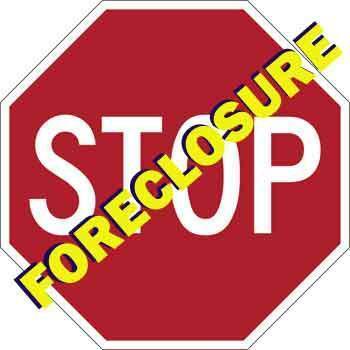The Effects of Short Sales on Credit
 A lot of home owners wonder whether putting up their property for a short sale is better than just allowing the financial institution to foreclose it. Some property owners even consider filing for bankruptcy in order to be relieved of their debts. Foreclosure and bankruptcy are just two of the options you have if you are experiencing a severe financial crisis. However, these two options have considerable effects on a lot of important factors in an individual’s life.
A lot of home owners wonder whether putting up their property for a short sale is better than just allowing the financial institution to foreclose it. Some property owners even consider filing for bankruptcy in order to be relieved of their debts. Foreclosure and bankruptcy are just two of the options you have if you are experiencing a severe financial crisis. However, these two options have considerable effects on a lot of important factors in an individual’s life.
On the other hand, a short sale, while still affecting these factors, has a significantly lesser impact. Deciding on whether to just allow your property to be foreclosed, to file for bankruptcy, or to perform a short sale depends ultimately on your choice as well as the value of your property. This is why it is important that you learn more about the benefits and the advantages of a short sale VS foreclosure or bankruptcy.
Factors that are affected by a Short Sale and Foreclosure
In order to understand whether a short sale is better than foreclosure or bankruptcy, it is vital that you know the answers to how short sale impacts credit. It is equally important that you also learn the effects of foreclosure on credit. Going over the benefits and the advantages of a short sale over foreclosure will help you decide on the best option for you.
While the main question that you should ask is: “How does a short sale impact credit?” you should also take some time to review the other factors affected by performing this type of sale on your property.
Here are the most important factors affected by a short sale:
- Your credit score
- Your credit history
- Future loan application
- Deficiency liability
- Deficiency judgment
- Deficiency amount
On the other hand, foreclosure affects the following factors:
- Your credit score
- Your credit history
- Your credit reports
- Future loan application with a mortgage company
- Future Fannie Mae loan application for a primary residence
- Future Fannie Mae loan application for a non primary residence
- Deficiency liability
- Deficiency judgment
- Deficiency amount
Short Sale and Foreclosure Effects on Credit Score
Now that you have a basic understanding of the factors in your life affected by a short sale and foreclosure, it is time that you compare the advantages of the former over the latter. The first question that you should know the answer to is: “How does a short sale impact credit score?”
A short sale, while still affecting your credit score, has a significantly lesser impact compared to foreclosure. Without any records of late payments, your credit score may only be impacted with a fifty point deduction. Late payments have one of the most significant negative effects on credit scores. The average points that you may lose over late payments are the following:
- 40 up to 110 points for late payments of 30 days
- 70 up to 135 points for late payments of 90 days
Foreclosure, on the other hand, can lower your credit score for more than 300 points. If your home has been foreclosed by the financial institution, this is going to stay on your credit record for ten years.
Short Sale and Foreclosure Effects on Credit History
The next question that you should ask is: “How does a short sale impact credit history?” If you put up your property or your home for a short sale, this is not going to be listed as an item on your credit history. After a successful short sale transaction, the company handling your mortgage will list the sale as “Settled in Full,” or as “Paid as Negotiated,” or as “Paid.”
“How does a short sale impact credit history?” If you put up your property or your home for a short sale, this is not going to be listed as an item on your credit history. After a successful short sale transaction, the company handling your mortgage will list the sale as “Settled in Full,” or as “Paid as Negotiated,” or as “Paid.”
A foreclosed property or home will be detailed on your credit history and will remain there for 10 years. This is also going to be permanent in your county’s public records.
Short Sale and Foreclosure Effects on Employment
Now that you have answered your main question of “how does a short sale impact credit?” it is time to take a look at its effects as well as the effects of foreclosure on your employment. A short sale, as discussed above, does not have a credit reporting item. This means that it usually does not have any bearing on your current or future employment.
On the other hand, foreclosure, as it is detailed on your credit reports and stays on your history for a long time, has a great impact on your current and future employment. Most employers check the credit history of their employees and their applicants. This means that if you are currently employed, your employer has the right to either re-assign you or even terminate you.
Short Sale and Foreclosure Effects on Future Loan Application
You might be wondering “how does a short sale impact credit and does it affect future loan application? The answer is yes, but only to a minimal. A future loan application with a mortgage company does not require you to declare that you have performed a short sale on your home. On the other hand, foreclosure affects the interest that you will receive in qualifying for a loan with a mortgage company.
If you are going to apply for a primary residence backed loan with Fannie Mae, you will be eligible to do so after two years. With a foreclosure, you would have to wait for more than five years to qualify. After a successful short sale transaction, you also would be eligible for a non primary residence backed loan with Fannie Mae after two years. With foreclosure, you would have to wait for seven or more years.
These are the answers to your question: “how does a short sale impact credit?” Now that you also know its benefits and advantages over foreclosure, you can now decide on whether putting up your home for a short sale or allowing it to foreclose is the best option for you.
